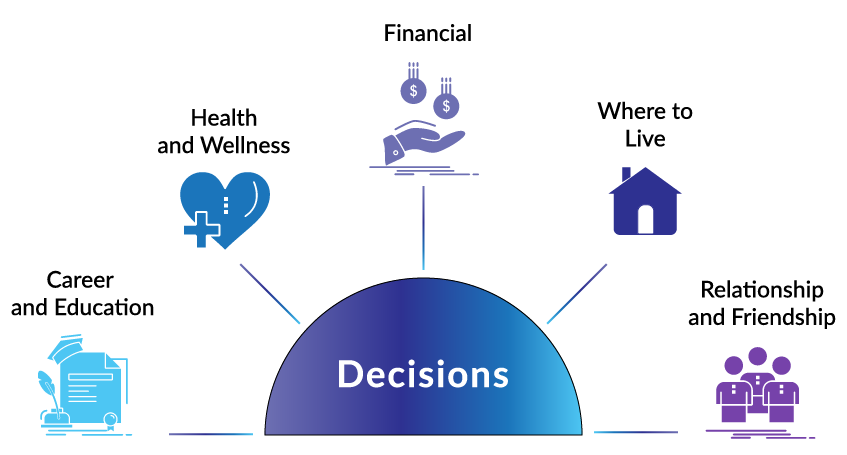Supported Decision-Making
Advice for people and families considering Supported Decision-Making?
“We need to allow our children to make mistakes and learn from them because we are not always going to be around to protect them.” – Tami Allen, parent of an adult with a disability
“These are your decision, and the people who support you are there to give you guidance, but the final decision is up to you.” – Brad Linnenkamp, Self-Advocate
How Do You Use Supported Decision Making?
“I have people by my side to give me the right prompts and explain a little more about what might happen or won’t happen.” – Skylar Schwindt, Self-Advocate
“We work as a team.” – Robyn Herzog, Self-Advocate
How do you choose your supporters?
“I get a feel for who they are and if they are comparable with me. I feel like I have to have somebody that I really trust.” – Brad Linnenkamp, Self-Advocate
“I like people that know me, I go with people who I trust, who are going to listen to me and help me make my decision. People who know me and a bit of my history.” – Colin Olenick, Self-Advocate
How can Families and Trusted Supporters Support Decision Making?
Some ways others can support decisions are:
- Create opportunities for decision making
- Presenting Information in an understandable way
- Thinking through different options
- Communicating a decision
- Learning from the outcome of a decision

Supported Decision Making In Research
In Research, we describe supported decision-making “as a personalized process that changes over the life course and involves an array of supports that are based on, at any given point in time, the person’s abilities and environmental demands for decision making.”
The attention that supported decision-making is receiving throughout the world is in recognition of changing views of disability that:
- Enable people with intellectual and developmental disabilities to remain at the center of decision-making processes in their lives, and
- Contribute to enhanced self-determination and quality of life for people with disabilities.
Deciding My Future?
Some people may benefit from a structured intervention to support them to learn how to make decisions and plan for supports.
Deciding My Future is an intervention that was created to:
- Support people to gain experience and develop abilities related to decision making
- Plan for supports to make and carry out decisions
- Evaluate the decision, supports, and outcome

